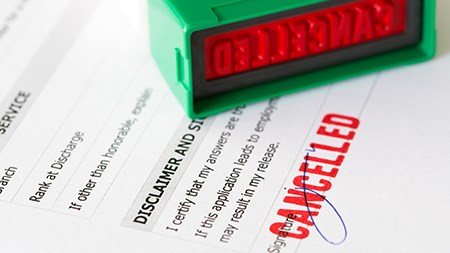A fair amount of confusion and dismay has become evident among landlords and tenants following the promulgation of the Consumer Protection Act (CPA), which, among other things, allows a tenant to cancel a lease immediately, no matter what the original agreement specified. This is on the condition that the CPA is deemed to apply to the lease with regards to supplier (landlord) and consumer (tenant) relationships and its relevance in terms of a lease, being a fixed-term agreement, accordingly.
There are landlords and agents who have not read the CPA carefully and/or do not understand its relevance and have the perception that their rights have been totally overruled and that the tenant can now do more or less what he likes - but this is not the case.
A "reasonable" cancellation penalty.
In terms of the CPA, the tenant does have the right to cancel the lease even though he may have signed an agreement to occupy the premises for a specified fixed period (for example, six months or a year). Furthermore, the tenant can do this without giving any legitimate reason (for example, loss of a job or sickness). However, tenants going this route are now obliged to give the landlord and/or his agent 20 business days' notice and the landlord is empowered to charge a "reasonable" cancellation penalty.
The term "reasonable," has not been fully defined, but cases already taken to the Rental Housing Tribunal, as made provision for according to the Rental Housing Act, indicate that it can cover a fairly comprehensive range of costs, as long as it is reasonable and can be proven.
The landlord is fully entitled to recover all "reasonable costs" and losses incurred through the tenant exercising his right, as per the CPA, to terminate the fixed-term agreement (or lease in this case). This can include the landlord's costs of re-advertising the property, in order to replace the tenant, and if the landlord cannot replace the tenant at the same time as the current tenant moves out, the landlord is entitled to charge the tenant for lost rental.
What the landlord must prove.
The landlord can also claim the full outstanding fees that are due to the agent, if applicable. The landlord has, however, to be able to prove that he has done everything reasonably possible to minimise his cost and losses. An important point to note is that if the landlord does not re-rent the property at the same, or at more favourable terms and conditions, then he will lose his right to claim reasonable penalties - should the tenant dispute the costs and take this up with the Rental Housing Tribunal.
All in all, the new provisions of the Consumer Protection Act, while giving the tenant an escape opportunity, adequately protect the landlord from significant loss. The change brought about by the new Act is, therefore, not as radical as many people have been led to believe.
*Taken from Bizcommunity




